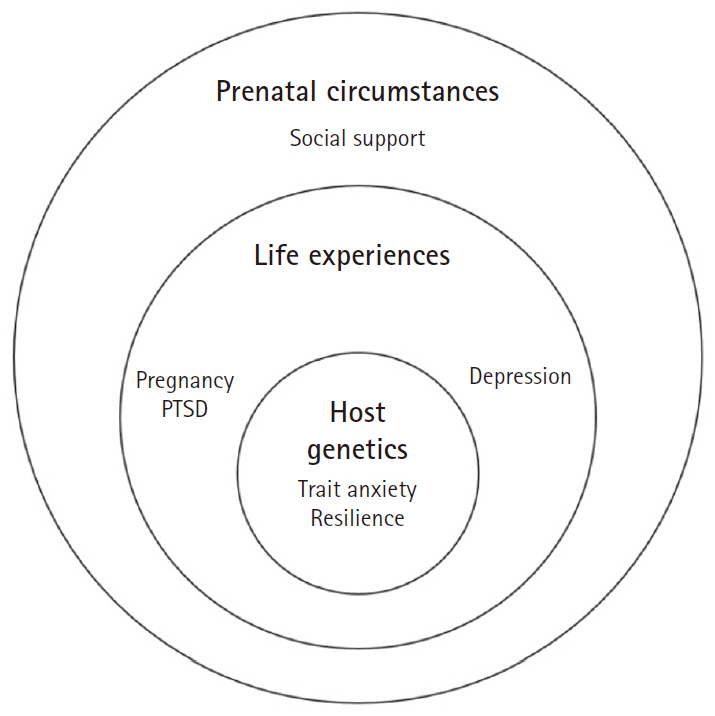-
Prenatal psychosocial factors and postpartum post-traumatic stress disorder in low-risk postnatal women: a longitudinal study
-
Jung Hee Yeo, So Yeon Park
-
J Korean Acad Nurs 2025;55(3):353-363. Published online August 21, 2025
-
DOI: https://doi.org/10.4040/jkan.25027
-
-
 Abstract Abstract
 PDF PDF ePub ePub
- Purpose
This study aimed to identify prenatal psychosocial factors influencing the development of postpartum post-traumatic stress disorder (PTSD) in both short-term (4–6 weeks postpartum) and long-term (4–6 and 14–18 weeks postpartum) assessments using the wheel model.
Methods
This study employed a longitudinal design with 359 women in their third trimester who received care at two maternity hospitals in City B. Surveys were used to measure depression, anxiety, resilience, and pregnancy-related PTSD during the third trimester (n=318). Postpartum PTSD was assessed at 4–6 weeks (n=198) and at 14–18 weeks postpartum (n=156). Data were analyzed using the t-test, chi-square test, and logistic regression.
Results
The prevalence of short-term postpartum PTSD was 32.7%, and that of long-term PTSD was 19.9%. The risk of short-term PTSD increased with higher pregnancy-related PTSD symptoms (odds ratio [OR], 1.04; 95% confidence interval [CI], 1.02–1.07), higher prenatal resilience (OR, 1.09; 95% CI, 1.00–1.18), and lower social support (OR, 0.93; 95% CI, 0.87–0.99). Similarly, the risk of long-term PTSD increased with higher pregnancy-related PTSD (OR, 1.09; 95% CI, 1.04–1.13), higher prenatal resilience (OR, 1.19; 95% CI, 1.06–1.34), and low educational attainment (OR, 6.75; 95% CI, 1.03–44.30).
Conclusion
The high prevalence of short- and long-term postpartum PTSD highlights the need for systematic screening and interventions for prenatal factors, including pregnancy-related PTSD, social support, resilience, and education level. Therefore, it is necessary to alleviate pregnancy-related PTSD and strengthen social support during prenatal care to prevent postpartum PTSD. Furthermore, women with high resilience should also be targeted in these interventions, because they can also develop postpartum PTSD.
|




